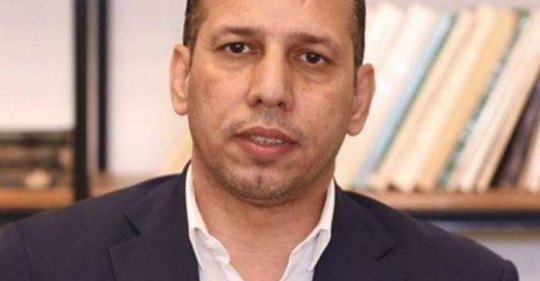Hisham al Hashimi and the Premonitory Assassination
Charles Elias Chartouni/July 08/2020
شارل الياس شرتوني: هاشم الهاشمي والإغتيال التحذيري
The clashing interpretations of H. al Hashimi assassination in Baghdad is less mysterious than purported to be.
A vocal critique of Sunnite and Shiite radicalism and the overpowering influence of pro-Iranian militias in Iraq, he seems to be the ideal target of all political factions opposed to Iraqi normalization and regained political autonomy vis a vis Iranian Suzerainty.
His assassination is a crude message conveyed to the new prime minister, Mustapha al Khadimi, who is pursuing an idiosyncratic path away from the conventional subservience to Iran displayed by the previous cabinets.
The moderate and independent profile featured by al Hashimi, a close confidant to the current prime minister, is seemingly disturbing the Kataeb Hezbollah pro-Iranian militias determined to preempt the progressive Iraqi emancipation from Iranian power orbit.
His open support to the reformist and Iraqi nationalist demonstrations of last fall 2019, made him an elective target to the pro-Iranian militias commissioned with the perpetuation of Iranian political influence at the very expense of a working Iraqi statehood.
This ostentatious political crime sends an outright message to prime minister al Khadimi and his acolytes: limited sovereignty and political subservience are the cost to be defrayed for the maintenance of a degree of formal Iraqi stateness.
This strategy follows a script set by Iranian power politics throughout the region: formal statehood and systemic subservience to Iranian power politics.
The cases of Lebanon, Syria, Gaza, Yemen and Iraq are quite illustrative of a systematic political strategy pursued and brutally enforced throughout the regional political spectrums.
The checkmating of the Iranian power drive impels the destruction of this geopolitical continuum and its manifold operational platforms, if the region were to oversee a normalization process based on geopolitical stabilization and enduring peace scenarios, rebuilding of Statehood matrices, and working interstate relationships.
By and large, the political assassination strategy instrumentalized by Iranian power politics is no hazard, it’s part of the political narrative and betrays the inability of the Islamic regime to reform itself, address the shortcomings of failed governance, and rehabilitate its decaying ideological legitimacy. Violence all across the board is no hazard, it’s the raw expression of a failing dystopia trying to forestall its self destruction.






















